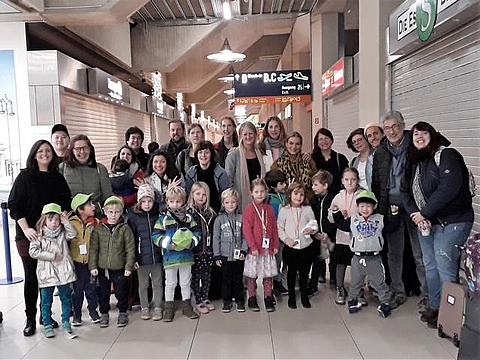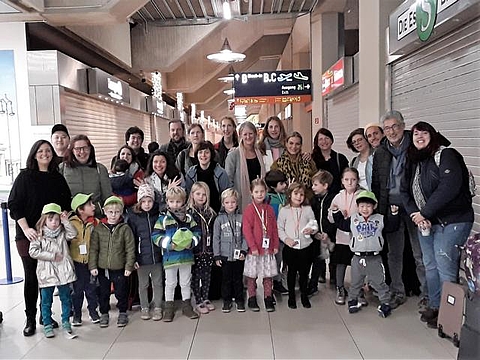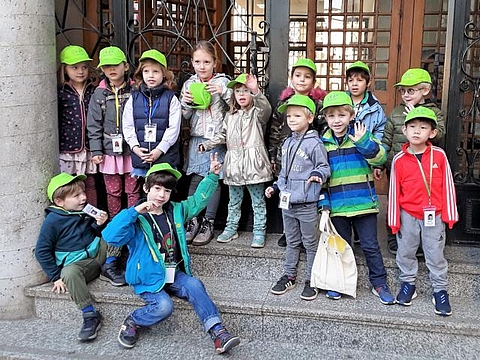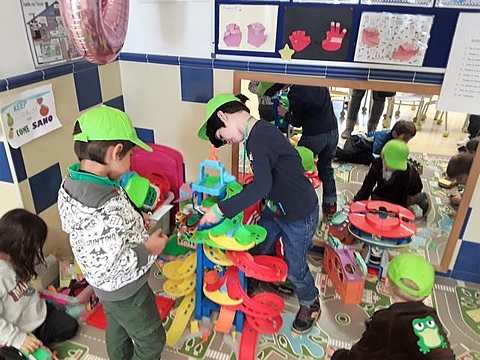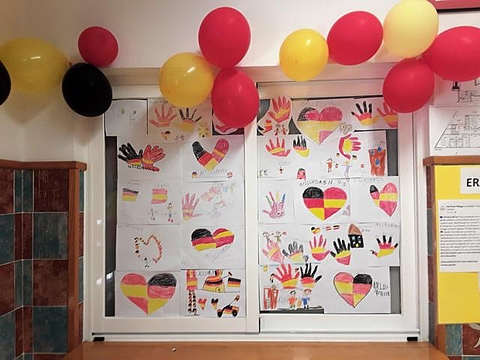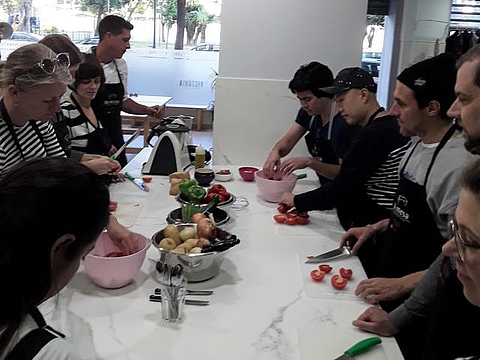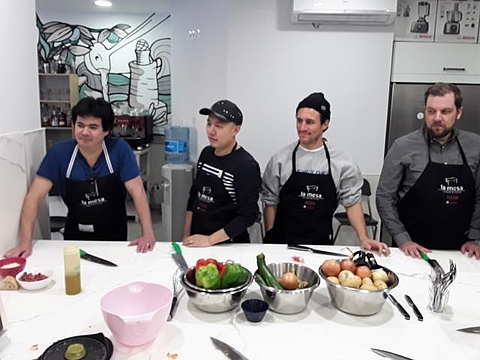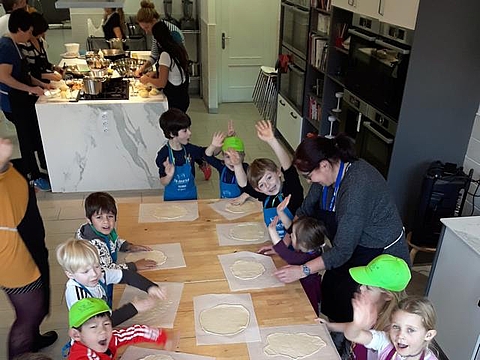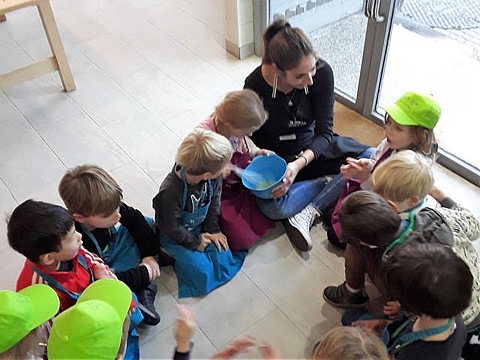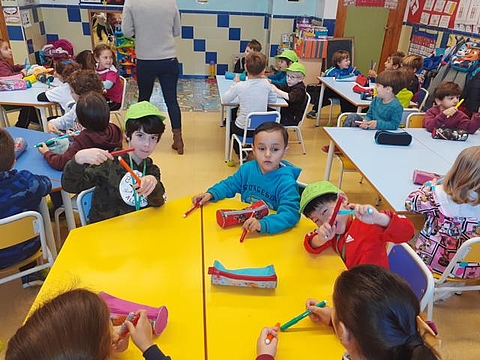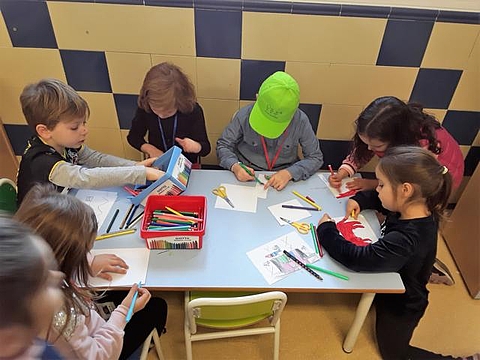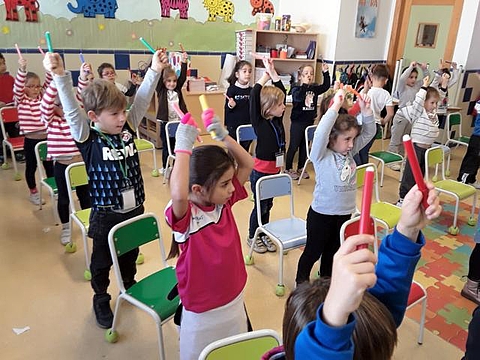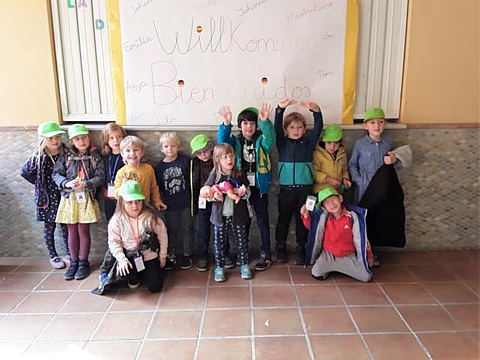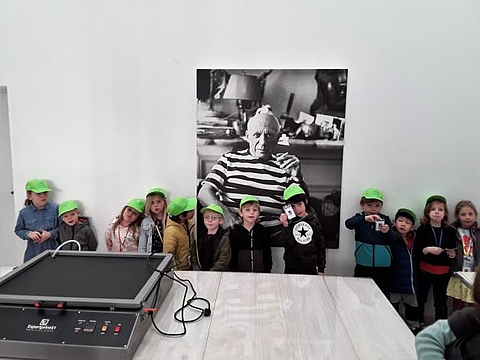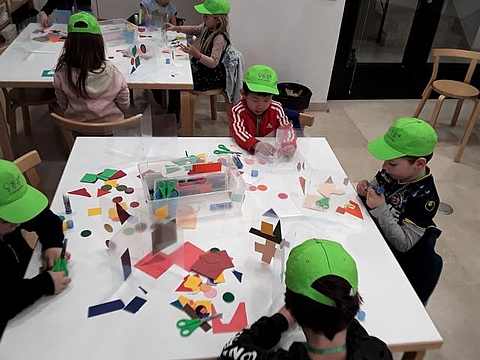Pre-school children on educational trip in Spain
FRÖBEL-Kindergarten KRÄHENNEST from Cologne participates in the EU program Erasmus+ and establishes a cultural exchange with a partner kindergarten from Málaga.
The pre-school children from the FRÖBEL-Kindergarten KRÄHENNEST from Cologne traveled to the second largest city in Andalusia from November 17th to 21st. For the first time the Spanish bilingual kindergarten visited the new partner institution "Colegio Marista de Málaga".
The cultural exchange between the two kindergartens in Germany and Spain is made possible by the European funding program Erasmus+. For three years, the respective preschool group has the great opportunity to experience the partner country and the respective other language and culture on site.
Five days full of impressions
On site, the educators visited the partner kindergarten every morning together with the children. "It's completely different here," the curious children quickly realized when they saw the many children's chairs and tables. Unlike in Germany, in Spain pre-school work begins already for three-year-olds.
"The children from our kindergarten are familiar with the Spanish language through our bilingual work. But not all children understand the language perfectly. The intensive contact with the Spanish language has shown us once again that children understand what is being said very well out of context and thus make contact with children who are still unknown to them without fear", explains facility manager Jan Mehrländer.
In the afternoons, the children experienced the city and its surroundings: the Picasso Museum, the beach and the fortress "Castillo de Gibralfaro" were visited and enthusiastically photographed.
Completely taken with the Spanish delicacies, such as turrón or the other numerous tapas, the travel group from Germany was happy to take part in a cooking course. Under the guidance of a cook, the adults prepared culinary classics from Andalusia.
The preparation and follow-up of the educational trip
The preparation took about a year - from drawing up the project outlin and filling out the application form to departure. Two of the four bilingual pedagogical staff have already lived in Malaga and knew their way around. With their help the partner kindergarten was found and contacted. Several parent evenings were organized and the program was put together. Together with the children the educational trip was prepared over several weeks.
Even the smaller children, who could not travel on their own, took part in the preparations: Books about Spain and books in Spanish were read out loud, a puzzle of the cathedral of Malaga was purchased, the typical Spanish food was discussed and the question of what a Spanish fire engine actually looks and sounds like was answered.
In the follow-up phase, a collage is created from the children's photos - enriched with impressions from the family travel diaries. The morning circle offers additional time and space to discuss the children's impressions.
"All the effort was really worth it. With great enthusiasm, the children report again and again about the trip and the impressions from Spain. They proudly tell the other children what they have experienced, what it looks like in Spain, what similarities and differences there are to the daycare center in Germany. They tell about new friendships they want to cultivate with their parents via Skype. Through the personal contacts, the enthusiasm for the Spanish language has also taken on a greater significance," says Jan Mehrländer.
So the upcoming preschool group from Krähennest can look forward to their trip with great anticipation!
About Erasmus+
The program is designed to provide young people with important key skills for their personal and professional development. Young Europeans should be encouraged to help shape the future of the EU. The program aims to inspire solidarity and tolerance across borders and thus give young people the feeling of active European citizenship. www.erasmusplus.de
